Web-Exclusive Interview & Video Feature
Musician: DRAKE WHITE
Video: “Power of a Woman”
SINGER-SONGWRITER DRAKE WHITE “OPTIMYSTIC” COSMIC COWBOY’S SECOND STUDIO RELEASE KEEPS THE GLASS HALF FULL AND SHINES LIGHT INTO THE DARKNESS
Drake White’s life reads almost like a Hollywood script complete with plot twists and turns, and a roller coaster ride of ups and downs. The country singer-songwriter grew up in Hokes Bluff, Alabama close to the hallowed ground of Muscle Shoals, where the Allman Brothers Band and Lynyrd Skynyrd laid down tracks. Five o’clock shadow, shades and hat, White easily channels the cool factor of The Swampers, but the look can also be associated with that of a survivor. Intimately acquainted with adversity, White shares a personal journey of someone who has defied the odds with unflinching honesty and vulnerability, on his second studio album The Optimystic, and in the process reveals what lies beyond the rugged, masculine exterior.
White has shared the stage with Luke Bryan, Eric Church and Zac Brown Band, and recently spoke with M Music & Musicians magazine about his creative process, the new album and benefits that come with pushing through life’s challenges.
Authenticity and a strong work ethic are qualities that become abundantly clear when first meeting Drake White. “It Takes Time” from his new album, offers a glimpse of the culture and mindset of White’s hometown of Hokes Bluff, Alabama. When asked about growing up there, he offers the romantic aspiration found in a Norman Rockwell oil painting, characterizing the small town as having a lot of pride and a lot of hard-working blue-collar Americans. He offers the local point of view, “That part of Alabama has a slower way of life and art really grows well there—in that slow soil where it takes time for a tomato to grow. Everything in this world is telling you to hurry up—immediate gratification of social media or Amazon’s click it and you got it at your door. That’s not the way art works. That’s what Muscle Shoals in Alabama did for me. It taught me to slow down and be in the moment, be in nature—listen to the wind, to the sounds that are telling you what to do and how to do it. That conviction will never lead you astray.”
Reflecting further on Muscle Shoals, the fabled recording studio near Hokes Bluff which has birthed many hits, White philosophizes, “Muscle Shoals—they say it’s in the water and I believe that. I believe that music has a way of penetrating through the thickest walls.”
I’m sure you have a song that when you listen to it, you’re like yeah, that’s me—that’s my music. That makes me feel like a young kid riding down the road in a CJ-7, with my dad—hanging out.
The country star’s path earning four Top 40 singles and being named Grammy’s “Artist of Tomorrow” began in church. White’s grandfather was a preacher and his father was a choir director, making country music, soul and conviction of spirituality essential elements of his youth.
2016’s Spark was White’s debut album. In Nashville, five years before the release, it was the result of writing with a lot of great songwriters. White describes it as pushing that rebellious side of where Muscle Shoals meets Nashville, without too much polish, opting for a more real and authentic approach. He cites authenticity as the reason why the album has done well in the U.S. and other parts of the world. Spark came with challenges but it is also where White embraced the creative tension ethos. He recalls the recording sessions, “It seems like forever ago and I love that record. The challenges are the push and pull. Creative tension is good. Anytime you’re with a financier, that’s what a label is—a financier (the label hopes of making money on the back end)—that creative tension exists because of where I’m from, my life and my path. Music is so subjective; art is subjective. If it’s right, there’s a good creative tension there.”
Pieces, a five song EP, followed two years later in 2018, pairing White with Grammy-nominated songwriter and producer Busbee, who had hits with Maren Morris and Keith Urban. Busbee passed away in 2019, due to brain cancer. While a lot of artists would feel the pressure or possibly be pressured by the label to turn out a full-length follow-up after the debut release or a carbon copy of its material, White continued to travel his path of being true to himself. The presence of White’s wife, Alex, can be felt on Pieces. White elaborates on their romance, the timbre of his voice rich with a Southern gentleman’s charm, “Alex and I have known each other since we are about 16 or 17. She went to a neighboring high school outside of Alabama where I grew up. We were just really good friends. I moved to Nashville and graduated from college in Auburn and was back for the holidays. We met up, had fun, enjoyed each other’s company and started hanging out. We dated for seven years before we got married. We dated a long time and made sure that it was right.”
Alex is an artisan chef and event planner. Together, in 2020, the husband-and-wife team opened Whitewood Hollow, a space for events, weddings and photo shoots in Whites Creek, Tennessee. He connects the dots for the inspiration that led to its creation, “As far as Whitewood Hollow, Alex was a kindergarten teacher before, in another life. When she moved up here, that’s what she was doing and we just had the conversation. For anyone who knows me, you’re always going to have the conversation of what would you do if you could do anything. I ask a lot of people that. I asked Alex that before we got married. She said she loved to cook, to serve and create moments in people’s lives that give them hope and wow them with food. She’s a product of her grandmother’s kitchen, where she learned to cook. She’s an incredible talent.
We built this barn because I was a builder early on. I’ve built barns, and built things, lived in them and worked as an engineer with a commercial construction outfit. I wanted to build a barn out here where I could rehearse and jam. We could make our kind of Levon Helm meets Live from Daryl’s House type of situation, where we bring people in and have experiences with music and food. Whitewood Hollow was born. I bought the property. It’s our dream—a magical place. I’m a good ole boy at heart. If I’m not playing music, I’m on a tractor, shooting a bow or chasing a deer. I have plenty of opportunity here. I’m always working the land. It’s a good thing.”
White references the connection between art and academics, and how personal experiences helped shape him, “The value of music education in our schools is incredible. I actually went to D.C. and advocated for music programs in our schools because music is math, music is science. Music enriches you, helps you learn and digest. A lot of people in rural Alabama or wherever—they may not have an opportunity to express their musical abilities. Where I’m from, it is baseball, football, basketball or bust—you don’t get an opportunity unless there’s something else. I encourage people to follow that. It was huge for me to be raised in church—where music was all over the place.”
One of White’s many endearing qualities is to tell it like it is without being pretentious. When asked to give advice to a young person pursuing a career in music, White says, “There’s not a quick road—everybody has a different path. Kids have many social media outlets telling them left, right or center, or if they’re good or bad. But you need to follow your gut, and that takes work and knowing who you are. For me in 1973, the Allman Brothers’ Eat a Peach record made me feel a certain way. I’m sure you have a song that when you listen to it, you’re like, ‘Yeah, that’s me—that’s my music.’ That makes me feel like a young kid riding down the road in a CJ-7, with my dad—hanging out. I just feel great. So, you take that sound and you say, ‘OK. I want to make music that I love.’ Then learn music, travel, talk to people, be empathetic, put yourself in uncomfortable situations, not dangerous situations but don’t be afraid to push the limit of talking to somebody—asking for advice. If you see Zac Brown or Mick Jagger, say ‘Hey, I’m an aspiring musician. Is there any advice you can give? I’d love to meet with you. Who knows where that might lead? Have the courage to talk with people you look up to and gather knowledge of people you know. Just know who you are, go out there and make music that makes you happy—makes you turn it up and evoke a feeling. You’ll get ‘no’ 100 times to every one ‘yes.’ You’ve got to push through those no’s with a smile—and keep going. For songwriters, you’ll write 100 songs and maybe two or three are good—or maybe you write three in a row that are good. For me, it’s muscle memory. Don’t be discouraged. Just do what you love to do.”
“The Simple Life” released in 2013 is one of four Top 40 single hits for White. He describes his creative process and his take on singles: “When I’m writing, I write where I’m at in that day. I have an idea, I write it down, and we chase after it. For a single or a hit, there are lots of people who like that challenge. ‘Today, we’ll sit down and write a hit for Kenny Chesney,’ and they can do that—and they do that very well. I go out and experience life. I live in the moment without my phone attached to my forehead. I soak it in and write about my perception, my perspective from where I stand. I try to bring authenticity to it. This is my truth—this is the way I see it. I don’t overthink it. When we pick singles, I go, ‘this needs to be the single, let’s put it out.’ Being independent makes it easy. Whatever I think we need to put out, we put out. It’s a good place to be.”
In 2019, White was diagnosed with AVM, a tangle of abnormal blood vessels, connecting arteries and veins in the brain. In August of that year, the condition threatened to derail the momentum gained by the new artist—when he suffered a stroke and collapsed on stage. Doctors didn’t have encouraging news. Their prognosis was Drake White might never perform again. After multiple procedures and countless hours of therapy, White regained the use of his left side, and pulled off something only seen in movies. Alex, who was part of the healing process, also faced health issues during this time.
Looking back on the darkness, White shares the view through his lens—what lessons he learned, and how prayer and faith in God helped him reach the light at the end of the tunnel—elements that are injected into his new album, The Optimystic. “I don’t think you can live through a near death experience without channeling it into your art. If you don’t, you’re doing yourself a great disservice. It taught me to be vulnerable, I wasn’t invincible, life was precious, people around me were precious, and music was healing—ultimately healing, like real life healing. Then I can do whatever I want to do. You can do whatever you put your mind to. If you can face being paralyzed and still keep an optimistic attitude—going through that battle between your ears—me winning that battle is what I’m most proud of. It taught me that family and people around me are power. Who I had around me and the people who helped get me back up on my feet, got me back moving. That was huge.”
“You have to win that battle between your ears—every day. It taught me that I’m a songwriter—I’m an artist. It taught me empathy for other people out there struggling. It taught me that everybody has a story, and everybody has troubles. I thought I knew that but now listening to people’s stories, and being so open with mine (even having a TED talk about it), helped me. When you open up like that, you start shining light into the darkness, and you can feel that. It taught me everything. It completely changed my perspective on vulnerability. When people are vulnerable—they’re not weak, they’re strong. People say be careful not to preach. Well, the world needs to be preached to by people who have been through this stuff—not in a condescending way—not like ‘this is the way you need to do it.’ They said I wasn’t going to walk again. They said I wasn’t going to get on stage again. I had my doubts but I knew from the get go that was not true—that I would be on stage again, that I would get back up there. It was challenged every day, every single day something came up—I was dropped by my label, dropped by management—you fall, you literally fall, your insurance falls through.”
“After insurance fell through, my wife got an auto immune disorder. We were both sitting there and had to call my mom—at 36—call my mom and mother-in-law. I needed help to wash my clothes—I went back to this childhood feeling of helplessness. We got on our knees and prayed to be healed and to keep breathing, and we prayed for music. I prayed for health and vitality. We prayed our way out of it. We came out victors, as cheesy as that sounds. That gives me the authority now to speak my truth. I did it—we did it. Alex taught me how to walk again, she helped with all that. The nurturers and the people out there that help people get through stuff like this, they need as much praise as the actual person that went through it, if not more because she had to be extremely strong. I was not easy to deal with for a lot of this process. It was the hardest thing I’ve ever done and the greatest thing I’ve ever done. I’m very proud of it. I’m glad it happened—and I would do it again. I don’t want to do it again in this lifetime, but if God asked me ‘Would you go through that again?’ Yeah, I would—because ultimately it made me be a better person, a better musician, a better writer, a more empathetic husband, a better husband, a better follower of Jesus—just a better person.”
After conquering the health issues related to AVM, the COVID-19 pandemic in March of 2020 presented White with yet another challenge—when live entertainment industry was shut down, hindering a lot of artists from connecting with fans. White rose to the occasion with his weekly Wednesday Night Therapy livestream shows, which satisfied his creative need during lockdown. The series also laid some of the foundation for The Optimystic, providing a vehicle to try out new material. White talks about that era, his fans and the benefits that accompany struggles, “The best part was getting feedback from fans, thousands of them popping up on my screen. I was able to do it very close to where I live and walk out there, use my vision of the barn as a gathering place to do something weekly. We did that—80 weeks in a row. I know a lot of artists did live broadcasts, and it’s not a comparison but I don’t know if any of them did 80 weeks in a row. We did it every Wednesday, and it grew to this thing. It gave us something to look forward to. It was for the fan. That’s when I realized, if you start with a fan and work backwards, you can’t go wrong. You can have people drop you, tell you not to do it, say ‘every week is too much—you’re going to wear people out.’ That’s what my management at the time was saying. We don’t want to wear people out. Well, I went with my gut—to do it every week because it satisfied this yearning. I don’t play music because I need to—I play music because I have to. It is just like breathing. I would do this even if I didn’t get paid. If I wasn’t Drake White, I would do it. It’s a lifeline for me.”
“‘Hurts the Healing’ is a song on the new record about that pain and going through all that stuff. Music is healing—music is the reason why. When all were struggling, going through isolation, the least we could do was jump in and be consistent with our playing. I wrote a lot, played the new songs, looked up on the screen and people would react—that’s how we built the record. If you can develop the mindset that it’s not about you, and get out of that victim mindset, you can develop the strength to push through and be proud that it’s hard because something’s on the other side that is really good. It’s like that whether it’s a stroke or a song. I’m not saying everything has to be hard. I’m saying that’s just life. Life is tough and there are tough things and you just push through it with a good attitude, and you understand that it’s making you tougher—it’s making you stronger and it’s making you into your ideal self—that person that you want to be.”
Along with wife Alex, White is responsible for the “Power of a Woman” campaign, a track from the new album. The official video underscores and reemphasizes the roles of women in society. White frames the campaign’s backstory, “We were talking around the kitchen table after the song came out. I frequent Wendell Smith’s diner down the road. I just love the waitresses, the chefs, the cooks—all the people who work there. I thought about these ladies that are out there working hard, and women who are the backbone of their family. Whether it’s a single mom or somebody who’s providing for a family, or somebody single and out there working hard—working multiple jobs to accomplish something. It’s the greatest time to be a woman, or a man, for that matter. There are more outlets right now for inspired women—to show their power. So we just started accepting stories. We put it out there in the public and got all these amazing stories. We knew we had something really cool here. We started highlighting women and their stories and it just took off from there.”
I don’t play music because I need to—I play music because I have to. It is just like breathing. I would do this if I didn’t get paid. If I wasn’t Drake White, I would do it. It’s a lifeline for me.
Listening to The Optimystic, it’s easy to visualize White, the co-writer of 12 of the 14 songs, with a pen and sheet of paper, scribbling lyrics, joining words, phrases and ideas together—much like pieces of a puzzle that fit effortlessly to form a bigger picture. The album’s title is a reflection of Drake White: artist, husband, Christian, survivor—and his outlook on life. Pondering his wordsmith proclivities, and how the subject matter for the album is interconnected with his beliefs on the mystery of life, White explains, “I’m always looking at words and saying them backwards and forwards—trying to put them with different things. I came up with the definition of the art of keeping a glass half full through life’s mystery (optimism) in its simplest form—and the mystic. I love that word. I love the mystery of life in every day. Nobody knows what tomorrow holds but to go through that with an optimistic attitude is truly a happy life, not fake optimism. I’ve been through a stroke. I don’t have to justify that anymore. To go through life with this is good. Tomorrow’s going to be good—that’s a lot happier life—that’s the way I live my life. I started thinking about it in a cosmic cowboy way, in that 70s vibe that I love giving off—bell-bottom country—that world of the Allman Brothers, that culture, that vibe. Ultimately, it’s a mix of spirituality and my religious beliefs combined with battling stuff in this life with an optimistic attitude, through the mystery of life.”
Producing two songs on the album by himself, and co-producing 10 tracks with Jaren Johnston of the band The Cadillac Three, White’s The Optimystic is a combination of brilliant storytelling and infectious hook-laden material which captures the listener, resulting in multiple replays, while revealing the country star’s more human side complete with all the frailties and vulnerabilities. There are many great cuts on this highly personal album, intermingled with shades of a variety of genres. White comes out swinging with southern rockers “50 Years Too Late” and “American Thunder” complete with blistering guitars. “Rainbow State of Mind” is soulful, like Al Green, while “Pawn Shop,” “Giants” and “Power of a Woman” provide commercially accessible pop irresistibility. “Hurts the Healing,” “It Takes Time,” and “The Optimystic” dive into more autobiographical territory. “Can’t Have My Dog” offers well-written comic relief. “Legends Never Die,” “Angel Side of You,” and “Best Things in Life Are Free” are the power ballads. “Amazing Grace,” a nod to White’s time spent in the church and possibly a thank you to his higher power, for saving both him and his music, is the perfect and appropriate choice for the closer.
Elaborating on The Optimystic’s introspective aspects, White acknowledges, “Hurts the Healing” is probably the most vulnerable song I’ve ever written. It is my personal experience of going through a tumultuous time like a stroke, infertility, Alex’s battles and putting it into words. It’s a very vulnerable song and every word in it is my story—my truth. Songwriting does not have to be true all the time. We’re writing or making up lyrics, but that song in particular is my truth. Every single word on it is me—my life and my truth.”
Drake White is currently on the road supporting Whiskey Myers, through the end of March. Next month, White will begin the spring leg of his headline tour in support of The Optimystic, available now.
— RODEO MARIE HANSON
www.DrakeWhite.com
www.Facebook.com/DrakeWhiteMusic
www.Instagram.com/drakewhitestomp
www.Twitter.com/DrakeWhite
https://www.youtube.com/channel/UChlRWnvlwJCNnJ8Jfbywr5Q
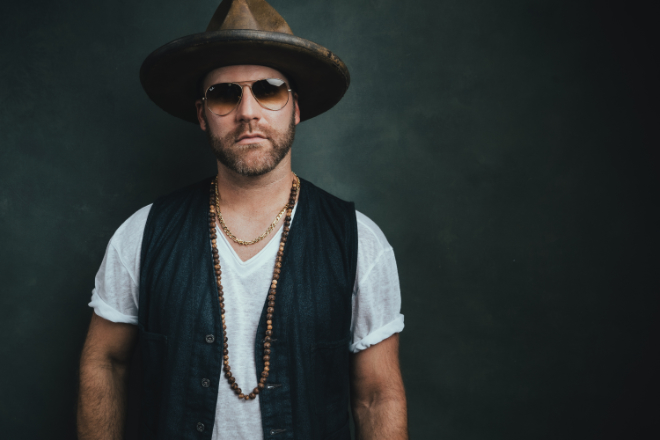
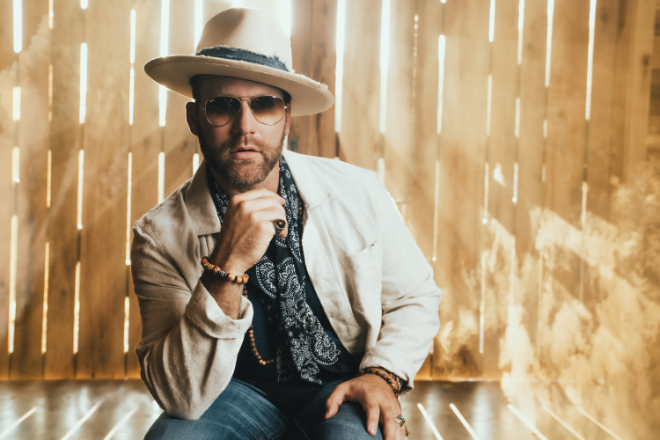
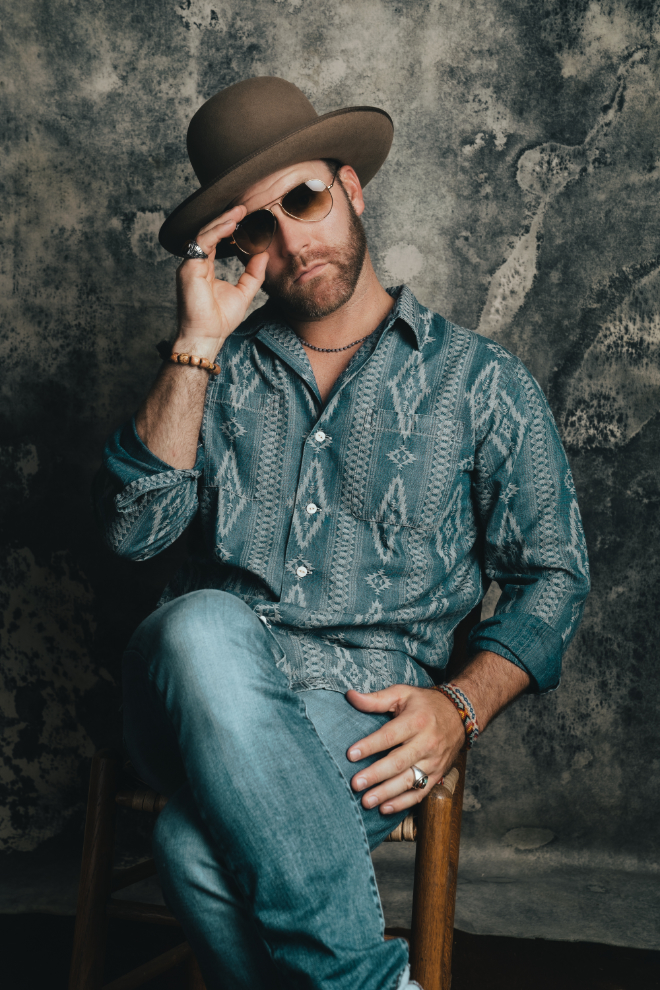
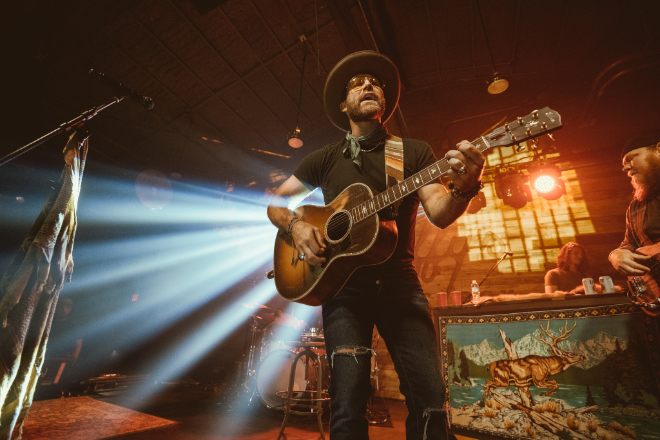
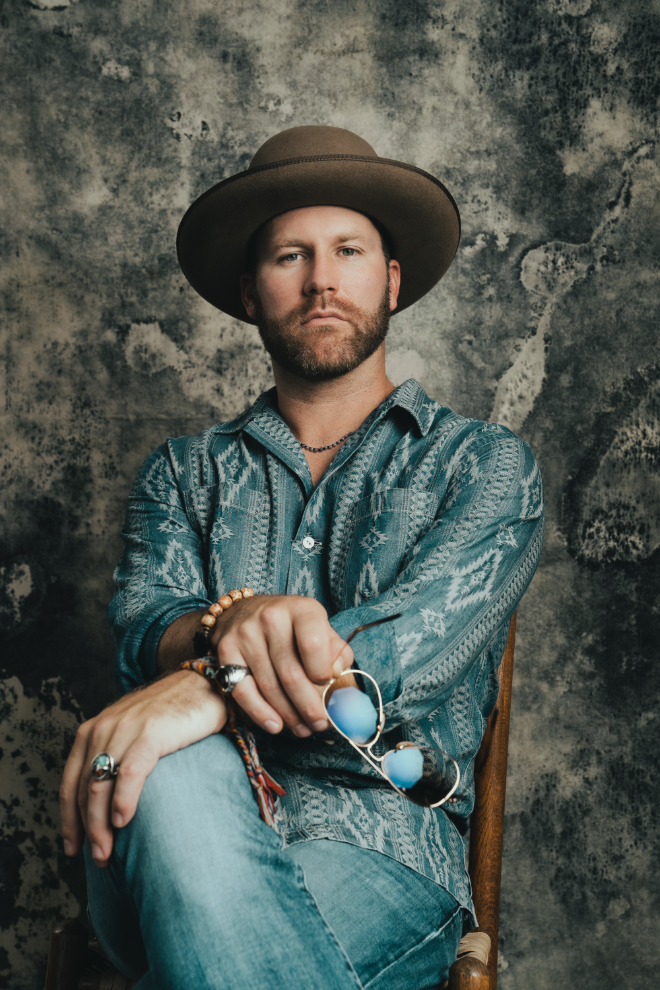
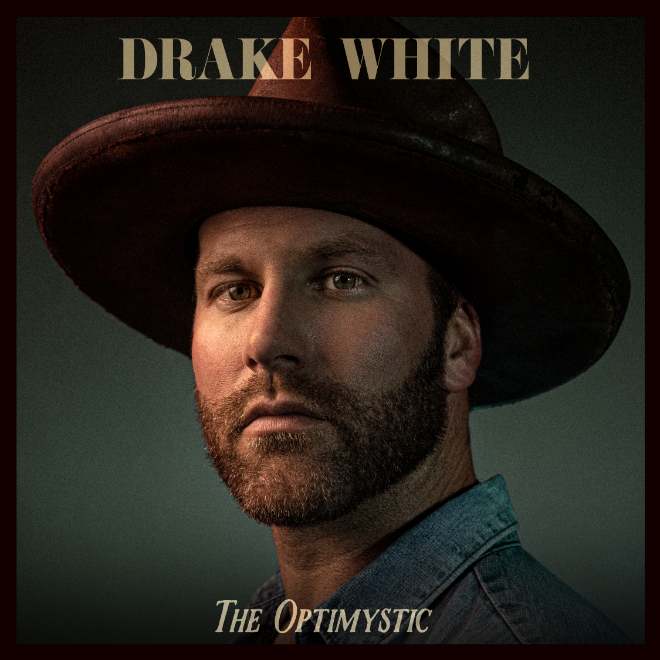
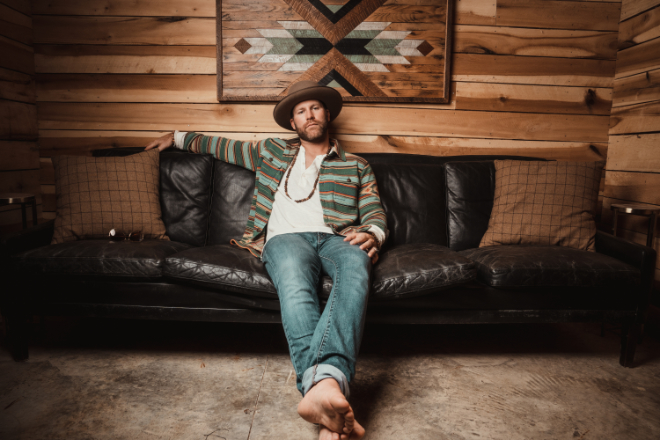
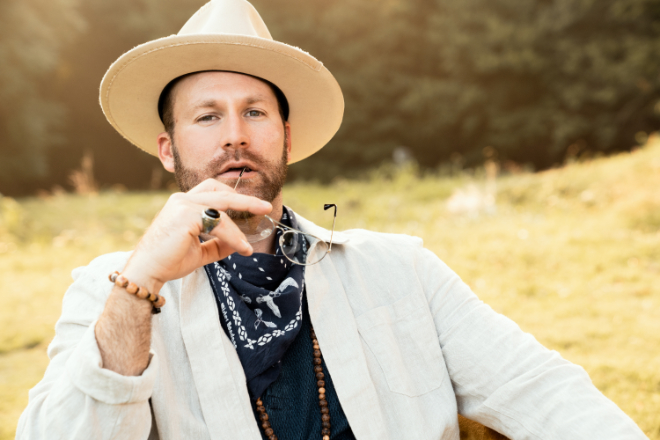



comment closed